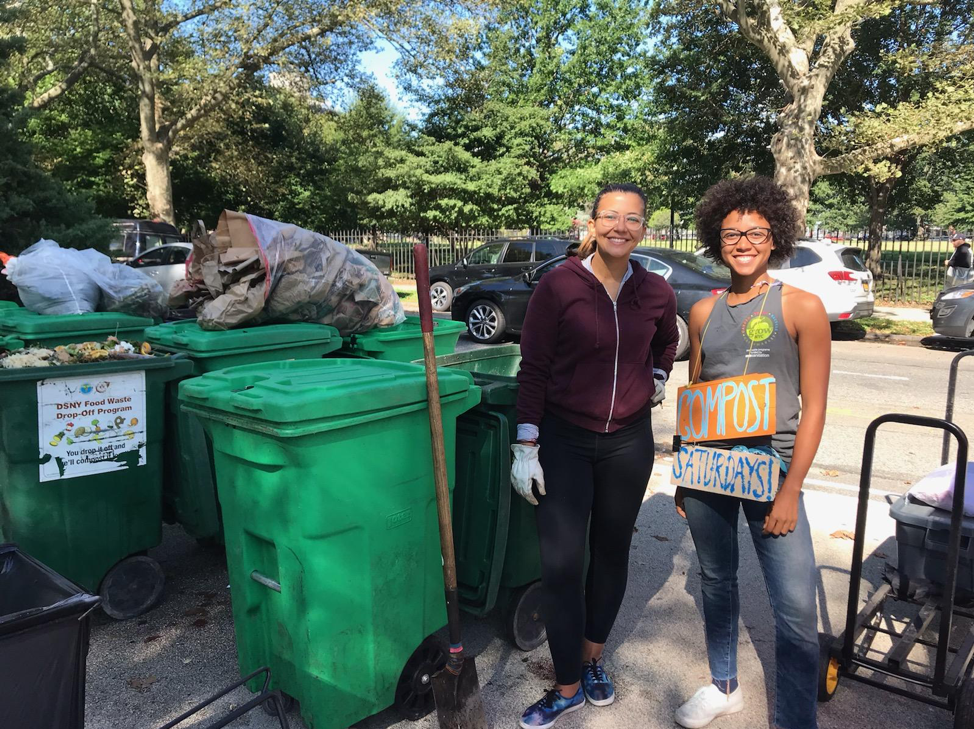Near the corner of North 12th and Union Avenue in Greenpoint, locals are making the most of their last days of summer. Union Avenue, which runs through McCarren Park, is lined with vendors for the weekly McCarren Park Greenmarket.
The sound of children’s laughter, barking dogs, and chatter vibrate through the trees on this mild Saturday morning in September. The air is thick with the smell of basil, as shoppers line up for their fresh produce, baked goods, and meats.
Startlingly, the scent of rotting vegetables hangs in the air as well. At the end of the block, a slender young woman with a shovel raised high, plunges it into a trash receptacle filled with food scraps. Market goers enter the park carrying bags of food waste, and head straight in her direction.
The woman is Lex Garnett, a 24-year-old volunteer with GrowNYC, a nonprofit organization with a mission, according to its website, to “improve New York City’s quality of life through environmental programs” and “empower all New Yorkers to secure a clean and healthy environment for future generations.”
Lex is helping to collect the compost of the day. The drop-off station is equipped with about six green trash bins and a bright orange information tent. The tent features a pile of pamphlets that reads COMPOST in thick black letters and contains information about how to compost in New York City. Market goers swing by the station with paper shopping bags, compostable bags, and plastic buckets full of scraps. The paper bags are emptied and piled-up next to the bins; the compostable bags go into the bins with the scraps; and the plastic buckets are dumped out and sent home with their owner. As Lex instructs visitors on what to do, she monitors the bins and continues to shovel any overflowing compost deep into the green receptacles.
Compost, as defined by the U.S. Environmental Protection Agency, “is organic material that can be added to soil to help plants grow.” Garnett explains that GrowNYC will accept food scraps such as fruits, vegetables, and grains as well as yard trimmings. Meat, dairy, and fish waste are not accepted. The group collects anywhere between 2,500 and 3,000 pounds of scraps at this location each week.
Where do the scraps go? According to grownyc.org, food scraps are transported to regional compost sites, where they will be “transformed into a fertile soil amendment for use on local urban farming and gardening projects.” Composting helps keep food waste—which makes up about 21% of NYC’s waste stream, according to grownyc.org—out of landfills, where it can release greenhouse gases. This benefits the city financially by cutting disposal costs while improving the quality of soil of street trees and gardens.
This morning Garnett is partnering with 27-year-old Iris Barre. It is their first time working at this location. Iris says she has actually had trouble signing up for shifts because there are rarely empty time slots available.
Volunteer interest appears to be high, and both Garnett and Barre seem to be enjoying getting their hands dirty.


Leave a Reply